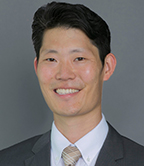Assistant Professor
Retinal Development and Regeneration
The Greig lab investigates genetic regulation of cell identity acquisition in the retina to inform development of stem cell therapies for currently irreversible causes of vision loss. The retina is a complex brain structure comprised of over 50 neuron types that are tasked with detecting light and processing this raw input to begin extracting visual information. We are interested in understanding how gene regulatory networks direct neural progenitors to generate these diverse classes and subtypes of retinal neurons, and how these neurons assemble into functional neural circuits. Our second goal is to formulate therapeutic strategies to repair retinal pathology by applying these basic developmental biology insights. In particular, we aim to reprogram Müller glia into replacement retinal ganglion cells or photoreceptors. As an additional area of interest, we focus on technology development, with a particular emphasis on genetic analysis and manipulation in mice. Currently, we are developing new methods for 1) mosaic analysis to facilitate phenotypic analysis of gene function at the cellular level and for 2) tracking cells during identity reprogramming experiments to detect instances of cell fusion, material transfer, or aberrant promoter activity.
To Learn More:
Research Areas:
Diabetic Retinopathy, Macular Degeneration, Myopia, Retina or Retinal Diseases, Stem Cell Research, Visual System Development, Retina Regeneration
Learn more about UCSF Ophthalmology faculty research.







